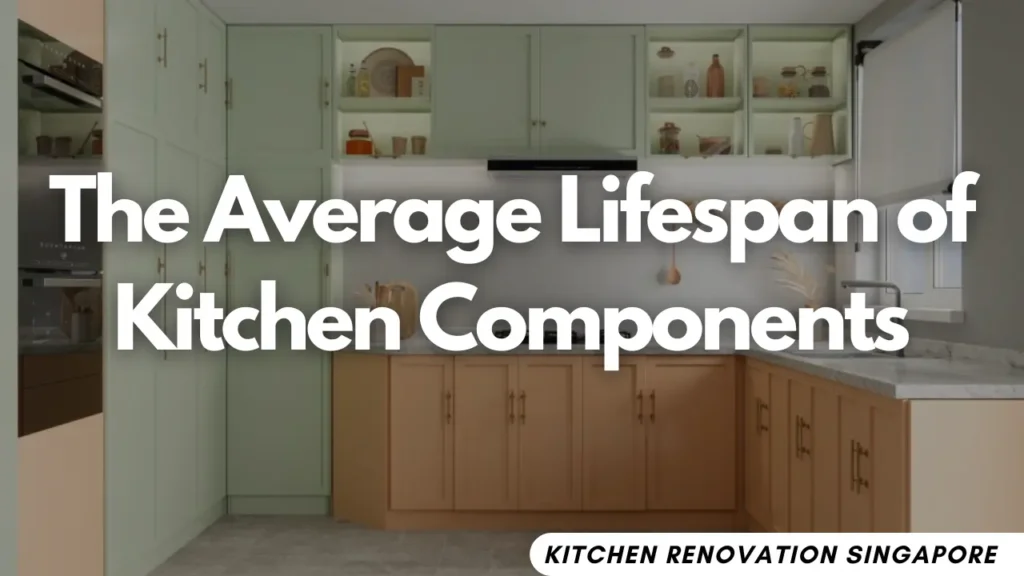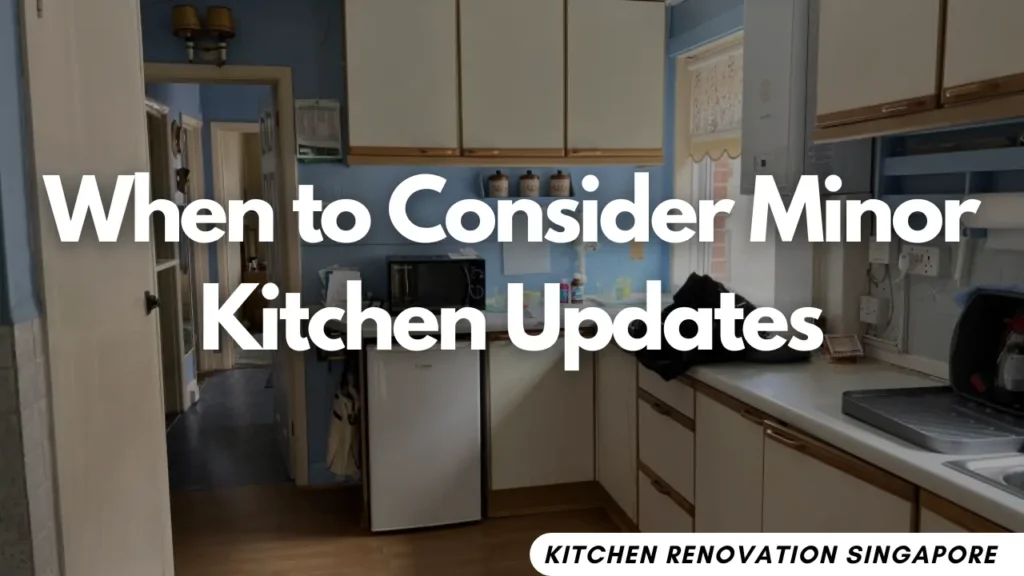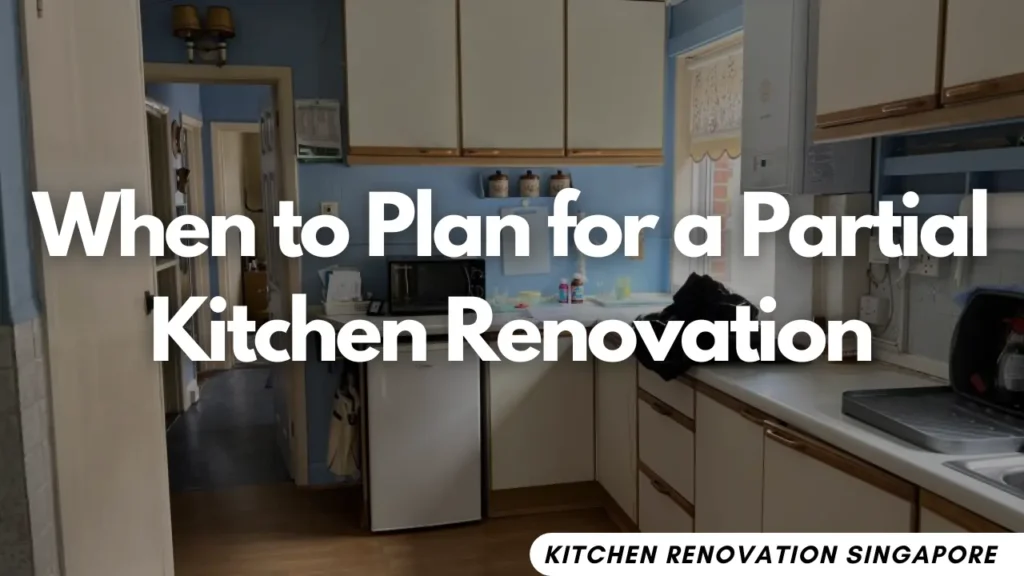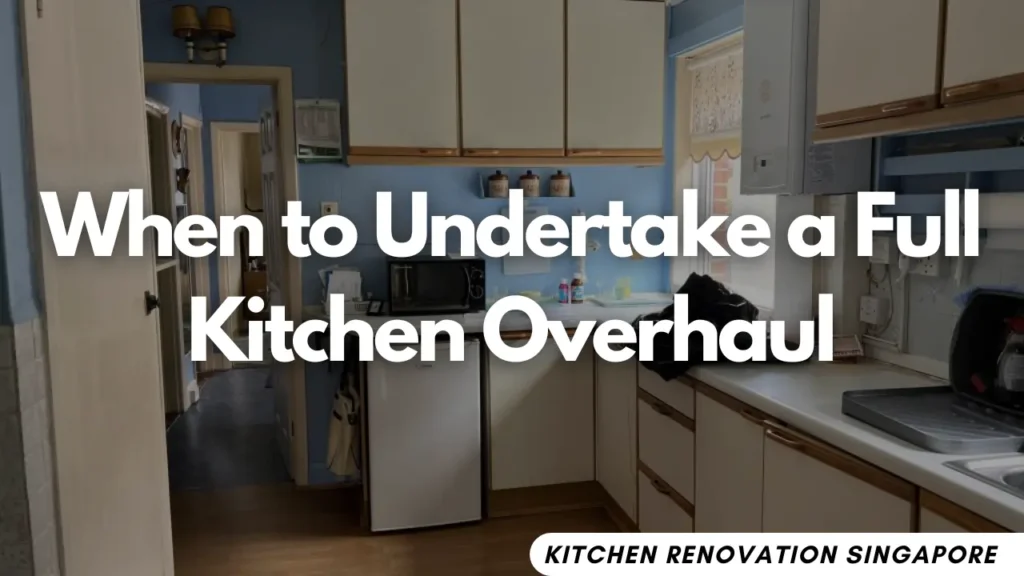
“How often should you renovate a kitchen?” – According to our renovation experts, a full-scale kitchen remodel is recommended every 10-15 years. However, this can vary based on your lifestyle needs, the kitchen’s current condition, emerging design trends, and your personal taste for a fresh new look.
You see, your kitchen sees a lot of action – from preparing delicious family meals to entertaining guests. Over time, cabinets wear out, appliances become outdated, and the overall aesthetic starts to feel stale. That’s when a kitchen renovation becomes a smart investment.
Signs it’s time for a kitchen revamp include dated cabinets/countertops, inefficient layouts, lack of storage, outdated appliances, wear and tear, and simply feeling uninspired by your current space. Even smaller updates like new lighting, paint colors, or hardware can breathe life into an aging kitchen.
The cost of a major kitchen overhaul may give you pause. But remember, this project yields long-term returns by increasing your home’s value and providing a beautiful, functional heart for your household.
With smart planning and an eye for emerging kitchen design trends, you can create a stunning yet timeless space.
So, let this be your guide to determining the ideal renovation schedule for your dream kitchen.

Signs Your Kitchen Needs a Renovation
If you are seeking an answer to the question of how often to remodel your kitchen, consider these signs below. If you notice any of them, it may be time to remodel your kitchen.
Outdated Appliances
Are your kitchen appliances constantly breaking down or failing to perform efficiently? Outdated and worn-out appliances can be a major headache. They not only disrupt your daily cooking routine but also drive up your utility bills. If your refrigerator, oven, dishwasher, or other major appliances are more than 10-15 years old, it’s likely time for an upgrade. New energy-efficient models can improve your cooking experience while saving you money in the long run.
Worn and Damaged Cabinets and Countertops
Take a close look at your cabinets and countertops. Are they showing signs of wear and tear, such as scratches, peeling, warping, or stains? Damaged or outdated cabinets and countertops can make your kitchen look tired and uninviting. Replacing them with new, modern materials can instantly elevate the look and feel of your space. Consider materials like granite, quartz, or solid wood for a durable and stylish update.
Inefficient Layout
Does your kitchen layout feel cramped, cluttered, or poorly designed? An inefficient layout can make cooking and entertaining a frustrating experience. Look for signs like inadequate counter space, poor traffic flow, or a lack of storage. A well-planned renovation can optimize the layout, creating a more functional and user-friendly space. This may involve knocking down walls, reconfiguring the placement of appliances, or adding features like a kitchen island or a pantry.
Outdated Style or Changing Needs
As your lifestyle and family dynamics evolve, your kitchen may no longer fit your needs or personal style. Perhaps you’ve outgrown the space, or your design preferences have changed over the years. A renovation allows you to customize your kitchen to suit your current lifestyle, whether that means creating an open-concept layout, incorporating modern design elements, or adding specialized features like a wine cooler or a built-in coffee station.
Safety and Accessibility Concerns
In some cases, a kitchen renovation may be necessary to address safety or accessibility issues. Outdated electrical wiring, poor lighting, or slippery flooring can pose potential hazards. If you or a family member has mobility challenges, you may need to make modifications to improve accessibility, such as lowering countertops or widening walkways.
The Average Lifespan of Kitchen Components

When considering when to do kitchen renovation, it’s essential to understand the typical lifespan of various components. This knowledge can help you prioritize which elements need immediate attention and plan for future replacements. Here’s a closer look at the average lifespan of common kitchen components:
Cabinets
Cabinets are a significant investment in any kitchen, and their lifespan can vary greatly depending on the materials used and the level of care they receive. Well-constructed wooden cabinets can last anywhere from 20 to 50 years with proper maintenance. However, if you notice signs of damage, such as peeling finishes, warping, or structural issues, it’s time to consider replacement.
Countertops
The lifespan of your countertops depends on the material. Laminate countertops typically last 10 to 20 years, while solid surface options like quartz or granite can endure for 20 years or more with proper care. Pay attention to cracks, scratches, or stains, which may indicate it’s time for a change.
Appliances
Major appliances like refrigerators, ovens, and dishwashers have an average lifespan of 10 to 15 years. However, with advancements in technology and energy efficiency, you may want to upgrade sooner. If your appliances are frequently breaking down or costing you more in repairs than a replacement would, it’s a clear sign to invest in new models.
Flooring
The lifespan of your kitchen flooring depends on the material. Hardwood floors can last 25 to 100 years with proper care, while laminate flooring typically needs replacement after 15 to 25 years. Tile and vinyl floors can also vary, with an average lifespan of 20 to 50 years. Look for signs of wear, such as cracks, discoloration, or lifting, which may indicate it’s time for a change.
Plumbing Fixtures
Faucets, sinks, and other plumbing fixtures can last anywhere from 15 to 30 years, depending on the quality of the materials and the level of use. If you notice leaks, rust, or other signs of wear, it’s advisable to replace these components to prevent further damage and water waste.
Lighting
Kitchen lighting can have a significant impact on the overall ambiance and functionality of the space. While light fixtures themselves can last for decades, you may want to consider upgrading to more energy-efficient options or to better complement your updated kitchen design.
By understanding the average lifespan of these kitchen components, you can make informed decisions about when to prioritize replacements during your renovation.
Beyond all these kitchen components, there are several other kitchen components to consider when planning a renovation.
Sinks typically last 15-30 years, depending on the material. Faucets have a similar lifespan, with high-quality models lasting up to 20 years.
Kitchen islands, pantries, and other built-in storage solutions can endure for decades with proper care, but may need updating to accommodate changing needs or styles.
Now, let’s explore the frequency for remodeling a kitchen based on the type of renovation. It will give you a clear idea about how often to renovate your kitchen.
When to Consider Minor Kitchen Updates (Every 5-10 Years)

Minor kitchen updates are ideal for keeping your space fresh and functional without a major renovation. These updates are recommended every 5-10 years, depending on the wear and tear of your kitchen components. Undertaking minor updates can:
• Breathe new life into your kitchen with a relatively small investment
• Address cosmetic issues like outdated finishes or hardware
• Enhance the overall aesthetic appeal and style of the space
Typical minor updates may include:
– Refinishing or repainting cabinets
– Replacing cabinet hardware (knobs, pulls, hinges)
– Updating lighting fixtures
– Installing a new backsplash
– Replacing countertops or adding a countertop overlay
When to Plan for a Partial Kitchen Renovation (10-15 Years)

A partial renovation is a more extensive update, often required when specific components or areas of your kitchen are significantly outdated or dysfunctional. This type of renovation is typically recommended every 10-15 years to address major pain points while preserving elements that are still in good condition. A partial renovation allows you to:
• Replace dated or inefficient appliances, cabinets, or countertops
• Improve layout and workflow issues
• Incorporate new design trends or personalized touches
Common areas addressed in a partial renovation include:
– Replacing major appliances (refrigerator, oven, dishwasher)
– Updating cabinets and countertops
– Reconfiguring the layout for better functionality
– Adding storage solutions or a kitchen island
– Upgrading electrical and plumbing systems
When to Undertake a Full Kitchen Overhaul (15-25 Years)

A full kitchen overhaul is a comprehensive renovation that involves gutting the entire space and starting from scratch. This level of renovation is typically recommended every 15-25 years, or when your kitchen is severely outdated, lacks functionality, or no longer meets your needs. A full overhaul allows you to:
• Completely redesign the layout and flow of the space
• Replace all components, from cabinets to appliances to flooring
• Incorporate the latest design trends, technologies, and materials
• Create a customized, efficient, and visually stunning kitchen
A full kitchen overhaul may encompass:
– Removing and replacing all cabinets, countertops, and flooring
– Installing new appliances, plumbing, and electrical systems
– Reconfiguring the layout, including walls and openings
– Incorporating custom features like a built-in pantry or coffee station
– Upgrading to energy-efficient and sustainable materials
FAQs
How often should you renovate your kitchen?
As a general guideline, you should consider minor kitchen updates every 5-10 years, partial renovations every 10-15 years, and full overhauls every 15-25 years. However, the timeline can vary based on factors like the age of your home, quality of materials, and your personal needs.
How do I know if my kitchen is outdated?
Signs of an outdated kitchen include worn or damaged cabinets and countertops, inefficient layouts, outdated appliances, and a general lack of functionality or aesthetic appeal that no longer meets your needs or style preferences.
How often do you change your kitchen cabinets?
Kitchen cabinets typically last 20-50 years with proper care and maintenance. However, you may need to replace them sooner if they show significant signs of wear, damage, or if your layout or storage needs have changed.
How long should a kitchen last?
With regular updates and maintenance, a well-constructed kitchen can last 20-30 years before requiring a major overhaul. However, the lifespan varies based on factors like the quality of materials, level of use, and your evolving needs.
How many years do cabinets last?
High-quality wood cabinets can last up to 50 years with proper care. However, the average lifespan for cabinets is typically 20-30 years before they may need refinishing or replacement.
How do I know if my cabinets need replacing?
Signs that your cabinets may need replacing include peeling finishes, warping, structural damage, lack of functionality or storage space, and an overall dated or worn appearance that detracts from your kitchen’s aesthetic.
Timing your kitchen renovation is important. But it is also important to plan for how long the renovation will take. Be sure to read our guide “How Long Does a Kitchen Renovation Take?” This will help you set realistic expectations and minimize disruptions to your daily life during the renovation.


